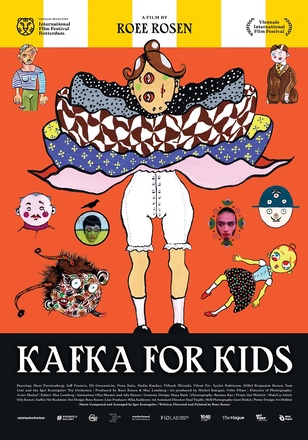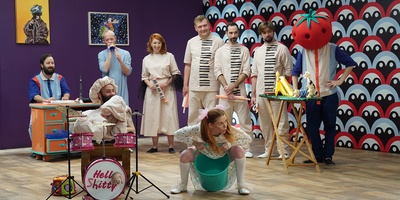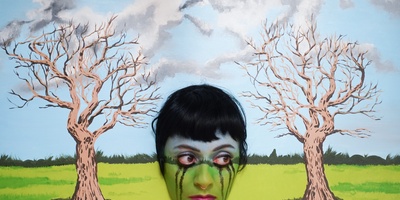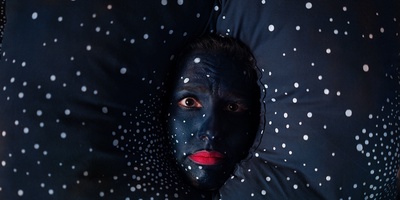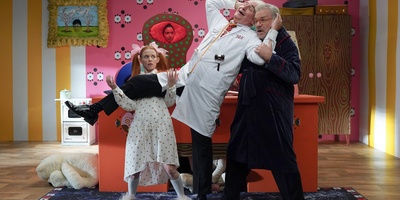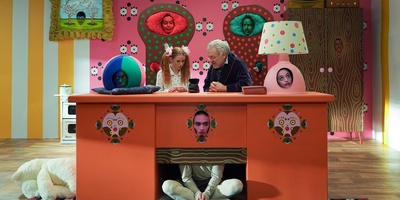2022 | Fiction | 110 min. | Israel
Kafka For Kids is a cross-generic film, combining a musical comedy with layers of drama and of political documentary. The film is set as the pilot episode for a TV series that perversely aims to make Kafka’s tales palpable for toddlers. The story delivered in this first episode is The Metamorphosis. While the tale of Gregor Samsa's transformation into a vermin is rendered in animation, the reading of the story occurs in live action, in the magical story-house, where an unnamed grandparent figure reads the story to a child, surrounded by a troupe of lively objects, such as Ms. Lamp and Mr. Table. These animistic friends dub the tale's characters, and perform the film's songs, accompanied by a toy orchestra. As the plot thickens, the ensemble is joined by other mascots, such as The Bearer of Bad News, and the house's sage: Kafka's left shoe. The centrality of the law in Kafka’s writings and thought, and the notions of childhood that are explored in the film lead towards its end to a very different narrative realm: an exposition of the complex and troubling ways in which childhood is legally circumscribed in the occupied territories by military law.
Directors Statement
While I always perceived Franz Kafka as one of the greatest literary influence on my work, I felt that attempts to transpose his writings to cinema are doomed to fail. Thus Kafka for Kids is, both conceptually and emotionally, a dichotomous experience, a parodic desecration of the venerated author, that also conveys a passionate engagement; a film that literally infantilizes Kafka, but at the same time seriously pursues concrete narrative, emotive and intellectual layers of his tale. Two or three aspects are particularly highlighted here. First, the surprising ways that indeed tie some of Kafka's works to fairy tells and other children-oriented genres. Second, while Kafka's works are habitually understood as nightmarish, his is also a world of laughter, playfulness and even exhilaration. The film resides in a trajectory between, on the one hand, legal thinking and tropes that are so central in Kafka and, on the other hand, notions and experiences of childhood. This is reflected in lyrics of a song that addresses Gregor's little sister, Grete, but equally pertains to the political and legal reality that the film explores later on: What is a child? What is a child? It's really hard to tell, A child is ever growing, but only for a spell. Till when a child? Till when a child? Seven? Twelve? Fourteen? When will it flip from plump and pink to wrinkled aubergine?
Director: Roee Rosen
Producers: Roee Rosen and Max Lomberg
Сast: Hani Furstenberg, Jeff Francis, Eli Gorenstein, Orna Katz, Nadia Kucher, Yiftach Mizrahi, Yifeat Ziv, Ayelet Robinson, Hillel Benjamin Rosen and Yam Umi
